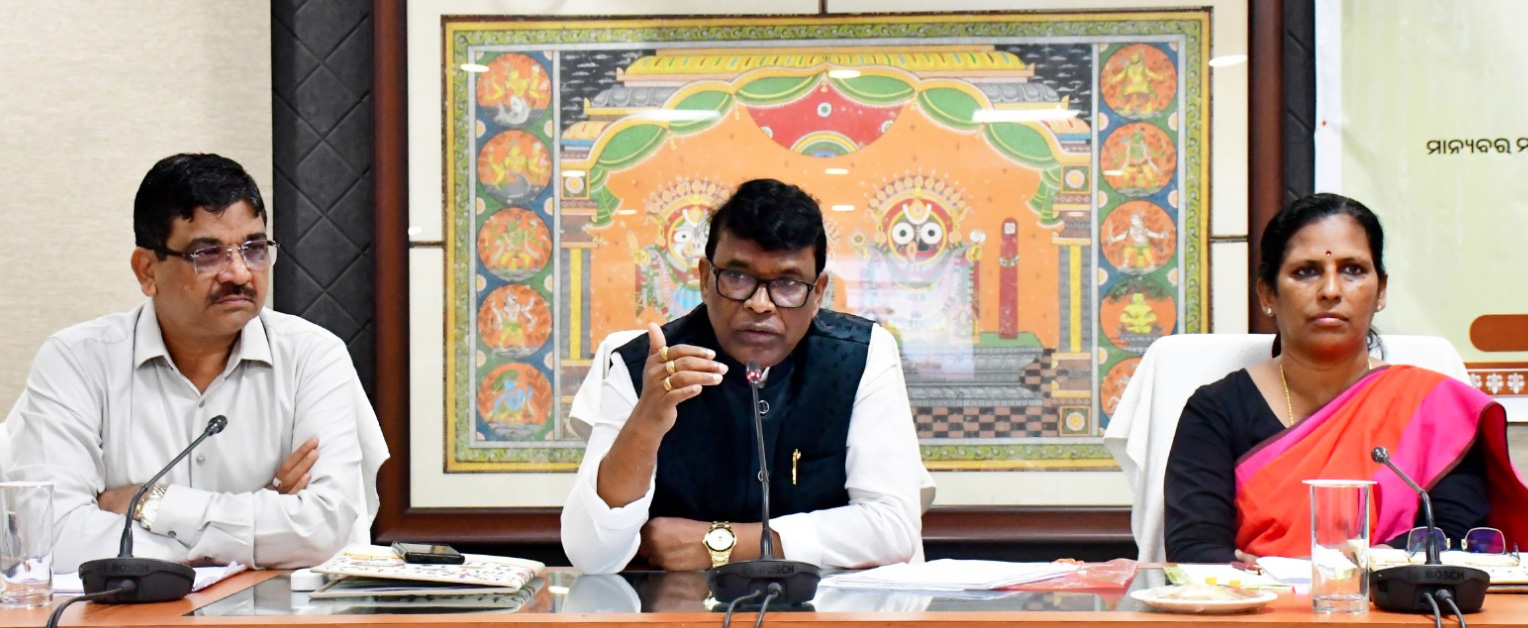Bhubaneswar: The Labour & Employees State Insurance Department convened a crucial review meeting of District Labour Officers at the SIRD conference hall, emphasizing a renewed commitment to worker welfare and the efficient implementation of state government schemes.
Shri Ganesh Ram Singkhuntia, Minister of State for Labour & Employees State Insurance, attending as the chief guest, underscored the pivotal role of laborers in the state and national progress. He highlighted the government’s dedication to their social and economic development through various welfare initiatives. The Minister urged labour officers to proactively address the basic problems of workers, particularly those unaware of rules and regulations, and to ensure the sincere implementation of construction worker registration at workplaces – a landmark government initiative. He specifically directed officers to expedite the identification and registration of genuine construction workers with the Board, issue labor identity cards, and disburse various forms of assistance within stipulated timelines.
The meeting also saw a strong focus on utilizing the ‘Odisha Shramika Sathi Mobile App’, recently launched by Chief Minister Shri Mohan Charan Majhi, to enable construction workers to access all board services remotely. Furthermore, the Minister stressed the importance of social security for unorganized workers and advised labour officers to prioritize the swift resolution of labor-related complaints on the Janasunani Portal. He expressed concern over the 286 pending complaints for over two months (April 1 to June 23, 2025) and called for their immediate resolution. A roadmap for future labour welfare initiatives was also sought from the officers.
Principal Secretary of the Labour and Employees State Insurance Department, Mrs. Chitra Arumugam, emphasized a shift from office-centric work to active field engagement for maximum worker registration. She announced plans for establishing offices and related arrangements for Assistant Labour Officers in each block, aiming to make labour administration more people-oriented and facilitate quicker problem resolution at the grassroots level. Smt. Arumugam stressed the need to educate workers about labour laws, policies, regulations, and government welfare programs.
Labour Commissioner Shri Indramani Tripathi, in his welcome address, reiterated the ongoing efforts to provide social security to both organized and unorganized sector workers. He specifically highlighted the need for prompt and targeted disbursal of financial assistance, such as education, marriage, maternity, death, and funeral assistance, to construction workers registered through the Pareshram portal.
The review meeting also saw valuable suggestions from Special Secretary & Director, ESI Smt.Madhumita Nayak, Additional Secretary Shri Rajesh Agarwal, and Additional Secretary Shri Niti Ranjan Sen.
Significant progress was noted in the current fiscal year (2025-26, up to June 22, 2025), with 1 lakh 22 thousand workers registered, Rs. 126 crore in financial assistance distributed, and Rs. 140 crore 86 lakh collected as cess. Districts like Balasore, Mayurbhanj, Jajpur, Bargarh, Kandhamal, Jagatsinghpur, Cuttack, Puri, Angul, and Malkangiri showed significant progress in worker registration, while Subarnapur, Bargarh, Sambalpur, Jagatsinghpur, Boudh, Kalahandi, Malkangiri, Cuttack, Nuapada, and Mayurbhanj led in financial assistance distribution.
Looking ahead, it was decided that labour officers would register one lakh unorganized workers quarterly and four lakh unorganized workers annually under the Odisha Unorganized Workers Social Security Board. Each Assistant Labour Officer is tasked with registering at least 100 unorganized laborers monthly. Plans are also in motion for massive awareness programs and registration drives at workplaces, with all pending registrations and financial assistance distributions to be completed by July 31, 2025. A key resolution was to ensure that no application remains pending for more than one month.


